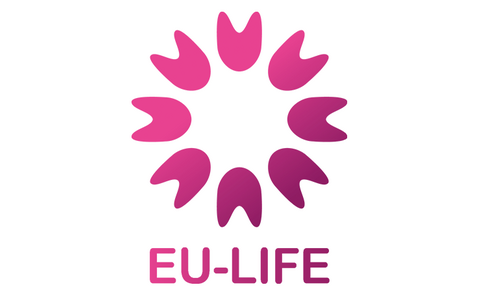
The ideal institute of research
We are living in an age of increasing knowledge, information, data, tweets and social media. Sometimes considered distractions from our scientific goals, objectives, visions and dreams, this exploding world of information is becoming increasingly important for networking, synergizing and forging new alliances.
Research needs to become nonetheless more critical to scientific content. There has been a paradigm shift, a Zeitenwende if you may, in the research environments we exist in. We are becoming more critical about peripheral matters and more lenient with scientific behaviour. While we are pressured to fulfil more and more administrative requirements, critical and argumentative research discussions are fading in the process. The misery that collects due to the piling forms and the bullying from controlling officers has adverse effects on our neurons and is a tragedy for creativity. And creativity is direly needed in biomedical research. Detlev Ganten spoke during the 25th anniversary of the making of the Max Delbrück Center and said, “The institute should care for its scientists, ensure that they are not disturbed by funders and administration. If you leave the scientists in peace, then everything comes by itself.” So true, such a touching speech.
During my doctoral times, I recall the kind of questions some professors and scientists placed to seminar speakers. Some might have considered this as grilling, today perhaps inappropriate. It was not much fun for the students, but was necessary to build character and to guarantee scientific rigor. Nowadays, we are rushed during meetings, often by the students themselves. I am a big advocate of time management, but when it comes to a serious scientific discussion that could potentially lead to a major breakthrough, everything else should fade into the background.
More time is needed for real scientific discussion. We would probably have more time for discussions and brainstorming, if we cut administrative emissions by 50%. The load seems to be increasing exponentially, even to graduate students, and even though policy makers promise to cut down on bureaucracy. Would it help if administrative officers within one institute shared their experiences with their forms? Shouldn’t the form creators know what is out there to gauge the load on the researchers? Are there redundancies in the paperwork? Can forms and their creators be peer-reviewed as well? Sometimes the deluge of forms feels like a funnel, and the scientist is the recipient at the bottom. Very fast, scientists have to learn how to funnel the deluge, while sticking to their track, their scientific milestones. Freedom to do science should not be stifled by restrictive and arbitrary rules. Why should scientists supplicate for permission before they apply for funding to execute their research ideas? Surely, the peer review of their grants is cut-throat enough.
When asked how to envision the research centres of the future, I think about true comradery across different scales and characters, through different age and gender populations. Tolerance and kindness and, most importantly, appreciation comes to mind. We often forget to thank each other but are then too timid to speak our concerns, for fear of incorrectness. Humility is often considered a deficit, a lack of scientific excellence or even competency. But it is an absolute must, especially when research becomes more and more multidimensional. In order to crack the code for the unsolved mysteries in medicine, multiple disciplines have teamed up, but communication channels still need to tune to the different languages that these disciplines are bringing with them, and importantly there is a dire need to level with each other, respect and appreciate each other. Even the assisting laboratory crew has an important say. Top-ranking scientists and administrators, policy makers, alone are not enough. We need to listen more, across different characters, different academic levels, different ages.
Fewer constraints are certainly helpful. So is less prejudice amongst scientists. Scientists have been brought up in a cut-throat culture, the need to publish or otherwise thou shall perish. But are we really doing rigorous research? Are we really determined to stick to our tracks, our visions, even if this takes decades of research? Or are we getting side-tracked by en vogue research, just for the purpose of surviving? Excellent scientists come in different shades and colors, shining at different levels. Some are amazingly apt in method development, some are incredibly knowledgeable of the literature, some are not only knowledgeable but are also excellent communicators of their knowledge. Some are creative, thinking outside the box, building on available knowledge, and coming up with crazy ideas. All these shades of scientists serve a significant purpose in research. How can they be channelled and protected by research institutes and their funders? Prejudices amongst scientists will not help in the long haul, comradery is necessary in order to better ourselves as a community. Many excellent scientists are opting to leave academia and research. This is the real tragedy.
Research institutions should be asking about the long-term implications of research. But how does one gauge whether research is really helping solve the mysteries of recalcitrant disease? How are the research results going to unlock these mysteries? Is our tax-payer funded research actually serving the community? Is high impact publishing the only solution to measure the quality of the research? Are the research results being transferred to the benefit of patients in a timely manner? How can we support research that will need decades to take off in the clinic?
We are living in a more open access society, and more scientists can access more published literature, no matter in which part of the world they might live. This is a major step forward and we should keep up the momentum. How can the scientists that are providing vital data openly be protected by research institutes and their funders?
In general, research institutes can always be better, just as their scientists strive to be. It is hardwired into their character. To better themselves. Scientists of all shades need to speak up their concerns more often and leave their comfort zones. I always thought that a scientist should be brilliant yet humble, communicative yet knowledgeable, stubborn yet compassionate, argumentative yet appreciative, contradictive yet tolerant. Some of these characteristics might be integral for projecting research forward.
Dr. Sonia Waiczies Chetcuti
- Header image created with Bing KI
-
Used prompt text
-
Create a picture of a scientific city in the future in blue/pink tones according to the following ideas:
© Bing Bild KIWe live in a time of ever-increasing knowledge, information, data, tweets and social media. Sometimes they are a distraction from our scientific goals, plans, visions and dreams, but the exploding world of information is becoming increasingly important for networking, synergizing and forging new alliances.
Research must nevertheless become more critical of scientific content. There has been a paradigm shift, a turning point if you like, in the research environments in which we find ourselves. And creativity is urgently needed in biomedical research. Detlev Ganten said during the 25th founding anniversary of the Max Delbrück Center: "The institute should take care of its scientists, make sure they are not disturbed by funders and administration. If you leave the researchers alone, everything will take care of itself." So true, so touching.
I'm a big proponent of time management, but when it comes to a serious scientific discussion that could potentially lead to a major breakthrough, everything else should take a back seat.
More time for real scientific discussion is needed. We would probably have more time for discussion and brainstorming if we reduced the administrative burden by 50%.
When asked to imagine the research centers of the future, I think of true camaraderie that transcends different scales and characters, different age and gender groups. Tolerance and kindness and, above all, appreciation come to mind. We often forget to thank each other, but are then too shy to voice our concerns for fear of being improper. Humility is often seen as a deficit, a lack of academic excellence or even competence. But it is an absolute must, especially as research becomes more multidimensional. To crack the unsolved mysteries in medicine, several disciplines have joined forces, but the channels of communication must always take into account the different languages that these disciplines bring, and there is an urgent need to meet at eye level, respecting and appreciating each other. Even the assisting laboratory staff have an important say. Top researchers and administrators, decision-makers alone are not enough. We need to listen more to everyone: different characters, different academic levels, different age groups.
Fewer restrictions are certainly helpful. This also applies to prejudices among researchers. Scientists grow up in a ruthless culture, with the need to publish or else perish. But are we really doing thorough research? Are we really determined to stay true to our path, to our visions, even if it requires decades of research? Or do we allow ourselves to be distracted by trendy research just to survive? Excellent researchers come in different shades and colors, shining at different levels. Some are amazingly adept at developing methods, some are incredibly well versed in the literature, some are not only knowledgeable but also excellent communicators of their knowledge. Some are creative, think outside the box, build on existing knowledge and come up with crazy ideas. All of these nuances that scientists have serve a purpose in research. How can they be guided and protected by research institutions and their funders? Prejudice among scientists doesn't help in the long run, camaraderie is necessary to better ourselves as a community.
Research institutions should ask about the long-term impact of research. But how can we measure whether research is really helping to solve the mysteries of intractable diseases? How will the research results unravel these mysteries? Is our taxpayer-funded research really serving the community? Is publishing in top-tier journals the only yardstick to measure the quality of research? Do research results benefit patients as quickly as possible? How can we support research that will take decades to reach the clinic?
In our society, where open science is increasingly important, more and more scientists worldwide have access to more and more published literature. This is great progress and we should keep it up. How can researchers who make important data openly available to everyone be protected by research institutions and their funders?
Research institutions can always improve, just as their scientists strive to do so. It is built into their DNA not to be satisfied with the status quo. Scientists of all stripes need to voice their concerns more often and step out of their comfort zones. I have always thought that a scientist should be brilliant yet humble, communicative yet knowledgeable, stubborn yet compassionate, argumentative yet appreciative, contradictory yet tolerant. Some of these qualities could be crucial in driving research forward.



